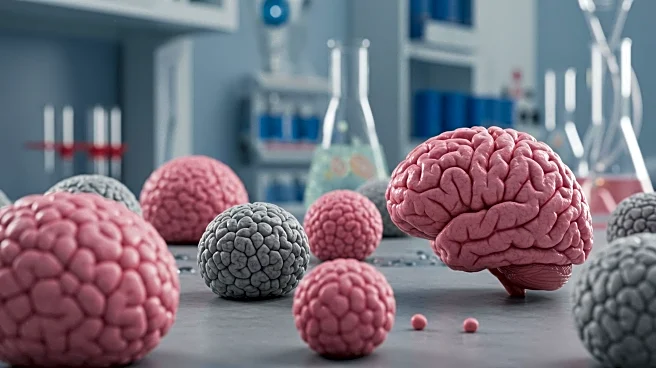What's Happening?
Organoids, particularly neural organoids, are revolutionizing neuroscience research by providing new insights into human brain development and neurological disorders. These three-dimensional cell cultures mimic the structure and function of human organs, offering a more accurate model for studying diseases and testing potential therapies. The use of organoids in neuroscience has accelerated discoveries in psychiatric disorders and therapeutic development, overcoming limitations of traditional cell culture and animal models. Despite challenges, organoids are poised to significantly impact both basic research and translational medicine.
Why It's Important?
The advancement of organoid technology in neuroscience holds the potential to transform our understanding of complex brain disorders and improve therapeutic strategies. By providing a more accurate model of human brain function, organoids can facilitate the development of precision medicine and cell replacement therapies. This could lead to breakthroughs in treating conditions like Alzheimer's, schizophrenia, and autism, which have been difficult to study using conventional methods. The ability to model human brain development and disease in vitro also opens new avenues for drug discovery and testing.
What's Next?
As organoid technology continues to evolve, researchers will likely focus on overcoming current challenges, such as replicating the full complexity of human brain tissue and ensuring reproducibility across studies. The integration of organoids into drug development pipelines could accelerate the discovery of new treatments and reduce reliance on animal testing. Additionally, ethical considerations regarding the use of human-derived organoids will need to be addressed as the technology advances. Continued collaboration between scientists, ethicists, and policymakers will be essential to navigate these challenges.









